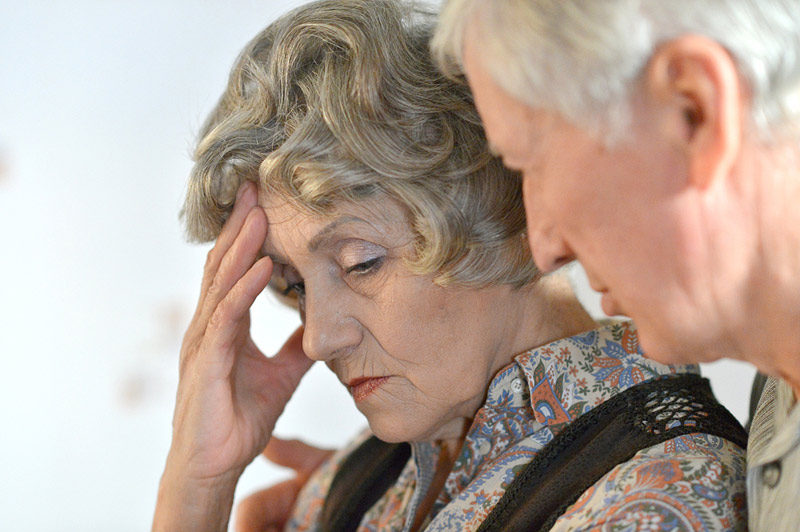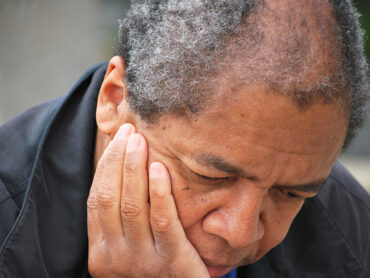Old age is often portrayed as a time of rest, reflection and opportunities to do things that were put off while raising families and pursuing careers.
Unfortunately, the aging process is not always so idyllic. Late-life events such as chronic and debilitating medical disorders, loss of friends and loved ones and the inability to take part in once-cherished activities can take a heavy toll on an aging person’s emotional well-being.
An older adult may also sense a loss of control over his or her life due to failing eyesight, hearing loss and other physical changes, as well as external pressures such as limited financial resources. These and other issues often give rise to negative emotions such as sadness, anxiety, loneliness and lowered self-esteem, which in turn lead to social withdrawal and apathy.
Depression
Another, more serious outcome is chronic depression, or depression that is recurring and persistent. Chronic depression has both physical and mental consequences that may complicate an older adult’s existing health condition and trigger new concerns.
There is evidence that some natural body changes associated with aging may increase a person’s risk of experiencing depression. Recent studies suggest that lower concentrations of folate in the blood and nervous system may contribute to depression, mental impairment and dementia. Researchers also suspect that there may be a link between the onset of late-life depression and Alzheimer’s disease.
Regardless of its cause, depression can have alarming physical effects on older people. The mortality rate for elderly men and women suffering from both depression and feelings of loneliness is higher than for those who are report satisfaction with their lives. Treatment programs for depressed elderly patients suffering from cardiovascular disease and other major illnesses usually take longer than normal, and are less successful.
In addition, the feelings of hopelessness and isolation that often spur thoughts of suicide are more prevalent among older adults, especially those with disabilities or confined to nursing homes.
A risk to daily living
Depression can also have potentially harmful effects on an older adult’s health in other ways. Depression can lead to eating habits that result in obesity or, conversely, can cause a significant loss of appetite and diminished energy levels, sometimes resulting in a condition known as geriatric anorexia.
Depressed older adults also experience higher rates of insomnia and memory loss. They also have longer than normal reaction times, increasing the hazards associated with cooking, driving, self-medication and other tasks that require full attention.
What you can do
While aging is an inevitable part of life, depression need not be part of it. Researchers agree that early recognition, diagnosis and treatment can counteract and prevent depression’s emotional and physical consequences.
Here are some issues to consider in addressing depression in an older adult:
- Be aware of physical limitations. Encourage an older adult to consult with a physician before making dietary changes or undertaking any new activity that may stress his or her stamina.
- Respect individual preferences. Because elderly people tend to be less amenable to lifestyle changes, they may be reluctant to adopt new habits or do things that their peers find highly enjoyable. A psychologist who specializes in aging issues can help tailor an individualized strategy to combat depression.
- Be tactful. An older person with fragile self-esteem may interpret well-intentioned encouragement as further proof of his or her declining condition. Others may resent any attempts at intervention. A psychologist can help friends and family members craft positive approaches for dealing with these and other sensitive issues.
The American Psychological Association gratefully acknowledges the assistance of Susan Silk, PhD, in developing this fact sheet.
American Psychological Association. http://www.apa.org/helpcenter/aging-depression.aspx






